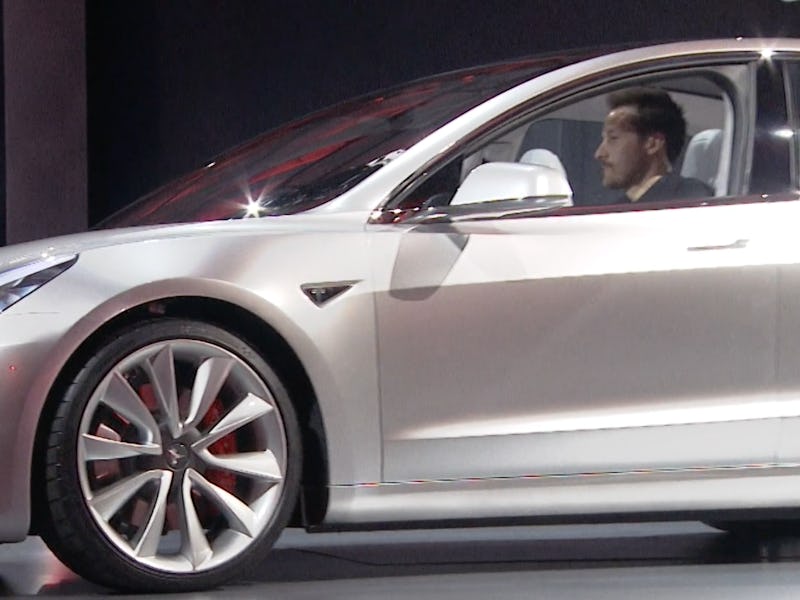Chinese automobile manufacturers are looking at the upcoming launch of the Tesla Model 3 - and they think they have a plan to beat it. Elon Musk’s upcoming $35,000 electric vehicle will place Tesla in a more affordable price bracket, but manufacturers like Future Mobility, WM Motor, and Singulato Motors think they can make cars at a similar price with much better quality. That’s because the Tesla Model 3, as it is not manufactured in China, will be subject to import tariffs.
“Tesla customers buying the Model 3 in China would have to shoulder the cost of a 25 percent import tariff on the car,” Daniel Kirchert, president and co-founder of Future Mobility, told Reuters in a report published Wednesday.
The Chinese automakers believe they have found a weakness in Musk’s strategy to bring high-quality electric cars to a mass market. The import tariff for American-made Tesla vehicles will drive up prices on the Model 3, placing local automakers at an advantage. They can make a more expensive car, and still have it cost the same as an imported Model 3. Tesla has denied rumors it plans to start producing cars locally, leaving the field clear for other companies.
Future Mobility will launch a midsize sports utility vehicle before 2020, followed by a sedan and a seven-seater vehicle. These will share similar components and cost around 300,000 yuan ($43,605).
“It’s a bit more than $40,000, a very competitive price positioning,” Kirchert said.
WM Motor will also launch its own plug-in sports utility vehicle in the latter half of 2018, the first of three vehicles expected to all launch by the end of 2020. Singulato has also unveiled a mass production crossover car that will be priced below 300,000 yuan, with the company now accepting deposits at 2,107 yuan.
It sounds like bad news for Tesla, but Musk has big plans to reach a mass audience with the Model 3, and its plans are still larger than its competitors. Tesla plans to produce 250,000 Model 3 vehicles per year by the end of 2018. By comparison, WM Motors wants to sell 100,000 cars per year by 2020.
The Tesla Model S has found success in China.
Tesla has worked hard to make inroads in China, and it’s so far proven successful. In March, the company announced a revenue of over $1 billion in 2016 in the country, tripling the previous year’s results.
The company has found success by differentiating itself from cheaper cars. The Chery eQ costs $8,600 after subsidies, but also only achieves a range of 124 miles, whereas the Model X can reach 289 miles. In 2015, after a strategic rethink, the company also added premium seat options, a popular option that many buyers shopping in that price range expect to find. A converter for charging up with government-owned power points also helped improve their attractiveness.
But if local automakers can offer a more luxurious drive at the same price point, Tesla may find itself struggling in the market.
